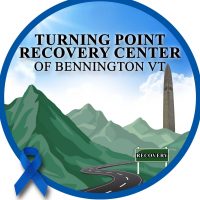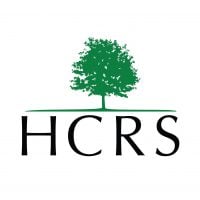
Turning Point Center of Bennington County
Drug Rehab Center in Bennington, Vermont
- Substance Abuse
- Opioid Addiction
- Dual Diagnosis
- Drug Addiction
- Alcoholism
The Turning Point Center of Bennington County is a comprehensive addiction treatment facility that offers various levels of care, including outpatient treatment and post-treatment support services, all at an affordable cost with the acceptance of private health insurance.
About Turning Point Center of Bennington County in Vermont
Turning Point Center of Bennington County in Bennington, Vermont is a drug treatment facility that specializes in helping individuals who are seeking to overcome alcoholism, opioid addiction, substance abuse, dual diagnosis, and drug addiction. They offer a variety of services to support individuals throughout their recovery journey. Whether someone is in need of drug rehab, outpatient care, or aftercare support, Turning Point Center of Bennington County provides a supportive and welcoming environment for individuals looking to get sober. With their focus on addressing addiction and substance abuse, this facility is dedicated to helping individuals achieve and maintain long-term recovery.
Turning Point Center of Bennington County offers a range of services and treatment methods for those seeking help with addiction and substance abuse. Their approach includes personalized treatment plans that are tailored to meet each individual's unique needs and circumstances. Through their outpatient levels of care, individuals have access to counseling, therapy, and support groups that can assist them in understanding the root causes of their addiction and developing strategies for recovery. Additionally, they offer aftercare support to ensure that individuals have ongoing resources and assistance in maintaining their sobriety. The facility accepts private health insurance, making their services accessible and affordable for those in need.

Genders
Ages
Modality
Additional
Conditions and Issues Treated
Substance Abuse Treatment is important when getting sober, as it helps addicts learn the skills they need to live a clean life. There are many different kinds of recovery treatment, including but not limited to medication-assisted therapy, behavioral therapeutic approaches, self-help groups, and counseling. Each treatment has its benefits that help addicts recover.
Counseling can help addicts learn the skills they need to live sober lives. It can be used to treat underlying mental health issues, like depression or anxiety, that could lead to relapse. Counseling can also help people find work, deal with family problems, and learn to manage living without drugs.
With so many people addicted to opioids, we need to help those who want to quit. The cycle begins when opioid addicts take opioids for a painful injury. When someone starts taking their medication differently or in excess, it means they’re addicted and at risk of overdosing.
In , detoxing from these types of treatments is the most effective way to beat this. Most facilities begin with medical assistance and then provide counseling services; rehabilitation follows after successful treatment.
Levels of Care Offered
This center offers a variety of custom treatment tailored to individual recovery. Currently available are Aftercare Support, Drug Rehab, Outpatient, with additional therapies available as listed below.
Alcohol or drug addiction, or co-occurring disorders, are treated in an outpatient program. The patient must attend therapy and other programs at the facility but can return home each night.
Outpatient treatment allows recovering addicts to live at home while receiving addiction treatment. Outpatients can attend group sessions for a few hours per week. Outpatients may also continue to work full time and study/attend school without interruption if they choose.
The accomplishment of completing a drug or alcohol treatment program is just the first step. Once that is complete, aftercare support comes into play. This includes helping people adjust to life without substances outside of guidelines with assistance like getting sober living accommodations and career counseling and AA/NA programs for those who are struggling between sobriety or want continued help in maintaining it once they have completed their initial rehabilitation at an addiction facility.
Aftercare comprises services that help recovering addicts readjust to normal day-to-day activities while working on specific issues. These problems include psychiatric issues, family problems caused by substance abuse, continuing education pursuits if desired during rehab, etc. These can last up to one year+ depending on what’s needed most urgently upon completion of earlier stages.
Therapies & Programs
Different people react differently to various treatment options. Some drug rehabilitation centers offer individualized treatment that caters to the specific needs of a drug addict. The best treatment option varies on an individual depending on the type of drug abused, life history, medical condition of the person, social circumstances, and the environment they live in now.
When a person enters drug rehab, they usually have anti-drug associations such as withdrawal symptoms, stress, cravings, etc. The first step of drug rehab is to detoxify the body from any residual substances in it. Drug rehabilitation centers usually employ trained medical professionals to help in this process. Usually, the initial detoxification lasts for five days, where the person is monitored under close supervision.
Family therapy sessions typically involve the addict and their family members. During these sessions, a therapist will work with everyone involved to help them understand addiction and find healthy ways of coping without substance abuse.
Some addicts might feel embarrassed about their substance abuse problems. By encouraging family members to attend these sessions, therapists can show addicts that they’re not alone in dealing with addiction. Therapists can also work with family members to help them understand addiction and learn how to offer support and encouragement to their loved one as they deal with substance abuse issues.
Attending group therapy at Turning Point Center of Bennington County in , is a useful way for those seeking sobriety to realize they aren’t the only one going through it.
This is when a group of people on different recovery phases get together and talk about what they’re going through, their triggers, successes, and failures. This can include alternative types of therapies too! Group therapy may occur on an outpatient or inpatient basis with groups that have no pre-existing relationships outside the session, unlike support groups where everyone already knows each other beforehand.
Payment Options Accepted
For specific insurance or payment methods please contact us.
Is your insurance accepted?
Ask an expert, call (888) 674-0062
Additional Details
Specifics, location, and helpful extra information.
Bennington, Vermont 5201 Phone Number(802) 442-9700 Meta DetailsUpdated November 25, 2023
Staff Verified
Turning Point Center of Bennington County Patient Reviews
There are no reviews yet. Be the first one to write one.
Bennington, Vermont Addiction Information
Vermont has the highest rate of illicit drug abuse in the nation. A third of all Vermonters who are addicted to drugs admit to first having abused prescription drugs. The largest drug threat in Vermont is opioids. Fentanyl, dubbed the most dangerous drug in America, is responsible for more than half of all opioid-related deaths in Vermont. A third of all residents aged 12 and older who are addicted to drugs admit to first having abused prescription drugs. In many overdose cases, cocaine is also a contributing factor.
Bennington, Vermont has a high rate of drug and alcohol addiction. 78% of drug overdose deaths in Bennington involve an opioid. The number of people seeking treatment for heroin addiction increased by 34% from 2016 to 2017. Bennington's main problems associated with drug addiction include crime, poverty, and health problems. The treatment process for drug addiction in Bennington will vary depending on the severity of the addiction and the person's individual needs.
Treatment in Nearby Cities
- Bristol, VT (87.0 mi.)
- Saint Johnsbury, VT (121.9 mi.)
- Wallingford, VT (42.5 mi.)
- Plainfield, VT (104.2 mi.)
- White River Junction, VT (69.2 mi.)
Centers near Turning Point Center of Bennington County


The facility name, logo and brand are the property and registered trademarks of Turning Point Center of Bennington County, and are being used for identification and informational purposes only. Use of these names, logos and brands shall not imply endorsement. RehabNow.org is not affiliated with or sponsored by Turning Point Center of Bennington County.





